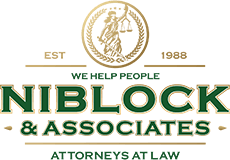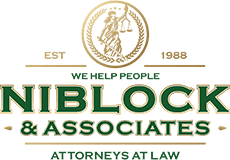Losing a job is one of the most stressful experiences a person can have in life. Whether it is a short term situation or an extended period of time, the stress of not knowing when the next paycheck is coming can cause people to make bad financial decisions that can come back to haunt them long after they eventually find employment again. Although severance and unemployment pay can help bridge the gap, neither are long term solutions and usually do not equal what your actual paycheck amount was when you were employed. When you find yourself unexpectedly out of work, it is wise to develop a plan for money management between jobs. The time period of being unemployed will be much more bearable if you have a plan.
MONTHLY EXPENSES
Upon losing a job, the first thing you should think of when it comes to money management between jobs is what do you need to pay to survive every month. If it is not needed, it should probably not be paid for until things improve on the financial front. For example, everyone needs to pay their rent/mortgage, energy bill, car payment and similar necessary expenses for survival. The money spent for non-essentials that have no effect on your survival could be the money you desperately need a few months down the line to keep paying the rent and keeping the lights on in the house. Credit card payments and unpaid medical bills can muddy the situation a bit. These are debts that you have agreed to pay, but they are not as essential as your home or feeding your family. You will have to balance paying those bills without spending so much as to put yourself in a worse position down the line. We will discuss this situation a bit more later.
INCOME
Immediately upon losing your job, the first thing you should do is file for unemployment, if eligible. The money received from this will not come near matching what you were bringing in. However, it will be something that you can count on for a temporary period to help with the monthly necessary expenses. Unemployment benefits can also include assistance with finding a new job or receiving some sort of employment training.
Another source of income that can be used is your retirement account and savings account. This is a very tricky situation, though, as you need those accounts in the future and want to ensure you do not deplete them. Many people have run through their retirement funds while unemployed and still end up being bankruptcy or unable to get by on a monthly basis.
Budgeting money is essential to money management between jobs, and you have to be careful not to immediately pay off debts, like car payments or credit card bills — just to eliminate monthly expenses as that can lead to a depletion of fund down the line that can put you in a worse situation than if you had never touched the retirement account or savings account to begin with. You also have to be aware of tax implications for any retirement or IRA account withdrawal.
Finally, you may have to lower your standards and take part time work in something unrelated to what you normally do to make a living in order to keep some income coming in on a monthly basis. It should be looked at as a temporary job helping you to keep the lights on until the job search opens up. It could be a real part time position with a grocery store or just doing odd jobs for money, such as fixing a car or babysitting.
BUDGET
Based on what you are bringing in every month and what expenses you deem to truly be necessary, you can now create a monthly budget that you must strictly adhere to for successful money management between jobs. Your budget must be based on a timeline where you have no certainty as to when you will be employed and making similar money to the income you were bringing in when you were employed.
Some debts, such as student loans, should be able to be deferred while you are unemployed due to your income being non-existent.
You can also contact your creditors and explain your situation to them. Some creditors will give you a little bit of time where you are paying minimal monthly payments without the normal penalties and increasing balances owed that normally occur when you make small payments to creditors. If your creditor will not work with you, you can attempt to correct the situation when your income situation improves. If you can pay the minimum owed, that is what you should do and not go over it until you have a new job.
While your credit score is important and you should try to keep it as high as you can, do not make payment decisions solely based on credit score reasons as your budget needs to be strictly adhered to.
MONEY MANAGEMENT BETWEEN JOBS ISN’T EASY, BUT IT CAN BE DONE
There is no one correct plan when you lose your job. In a perfect world, you will be able to pay your necessary expenses and still be able to afford paying all creditors at least the minimum owed while you are unemployed.
If you can’t do that, make sure to contact your creditors and communicate your situation. If they decide to assist you, that is great. If they won’t help you, you now know that you will have to monitor that situation closely and if the job search doesn’t improve, you might have to entertain bankruptcy. Once the creditor starts contacting you on a regular basis, you will know that they are aggressively coming after you for repayment. If you cannot settle the situation with them, you may want to hire an attorney to see what your options are.
Some debts, like medical bills, won’t show up on a credit report for six months, which gives you time to work something out with the creditor. Other debts, like credit card debt, stop for no one and you will have to monitor them closely.
If you own a home, you may seek to get assistance due to your lack of income. Mortgage companies can sometimes enroll you in a program that lowers your payment temporarily, if not permanently due to your situation. If the job search lasts too long and you end up getting sued by your creditor, be on the lookout for them to get a judgment against you and potentially garnish your wages or possibly attach the judgment to your property with a lien.
Hopefully, your job search doesn’t last too long and these situations don’t occur. Either way, you now have the tools to implement a plan and money management between jobs and do your best to survive and navigate the waters of unemployment as best as you can.


